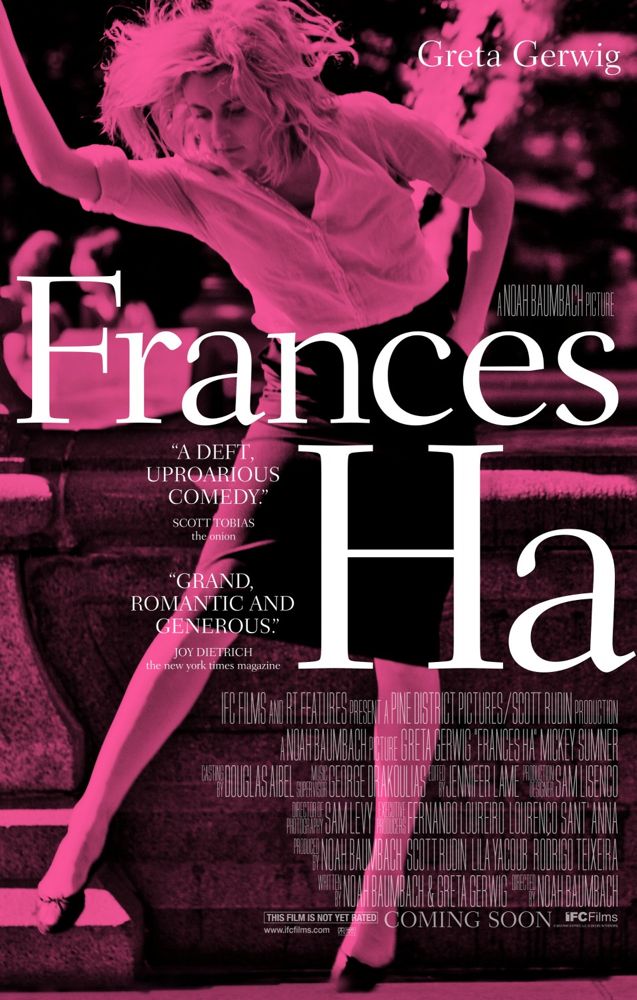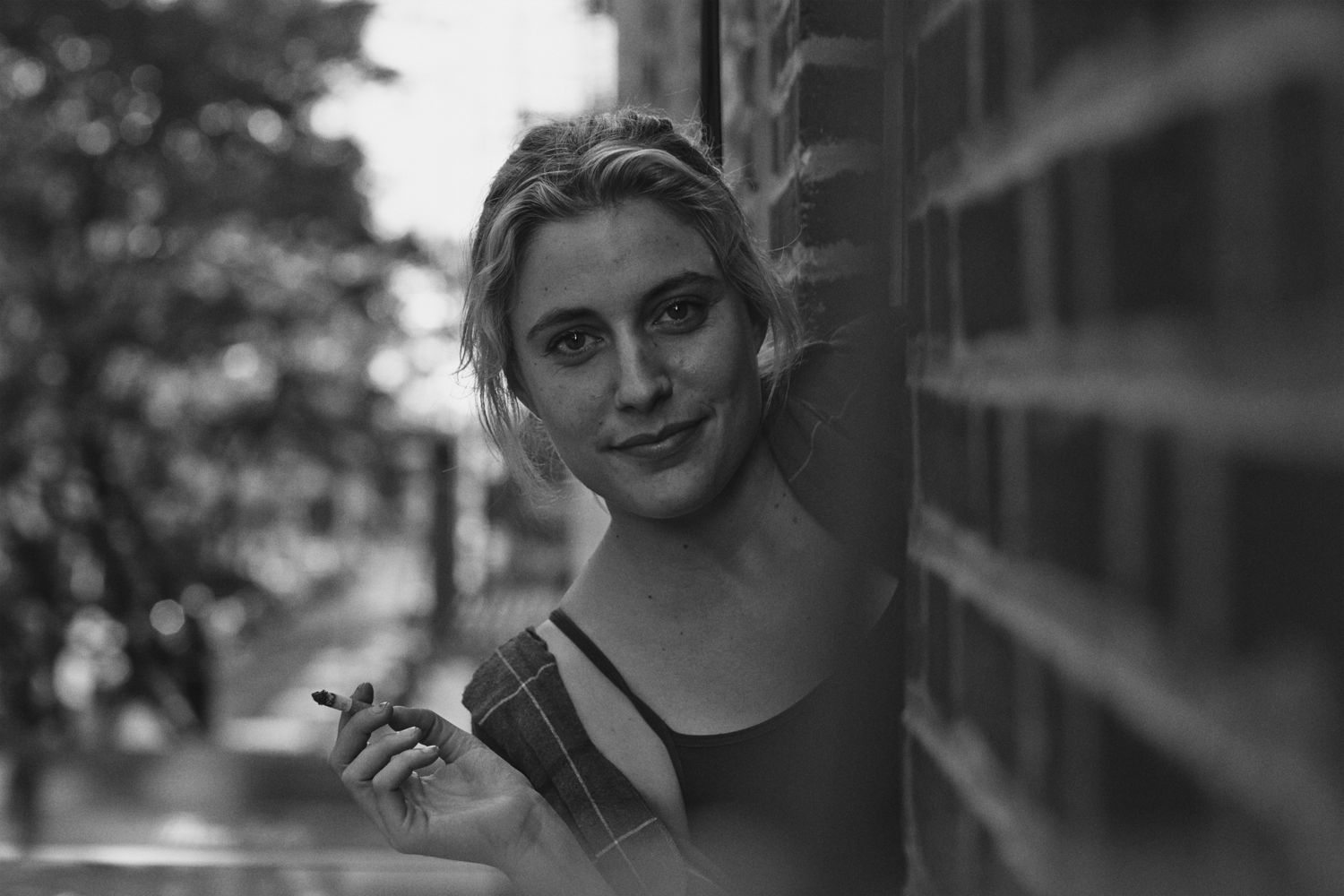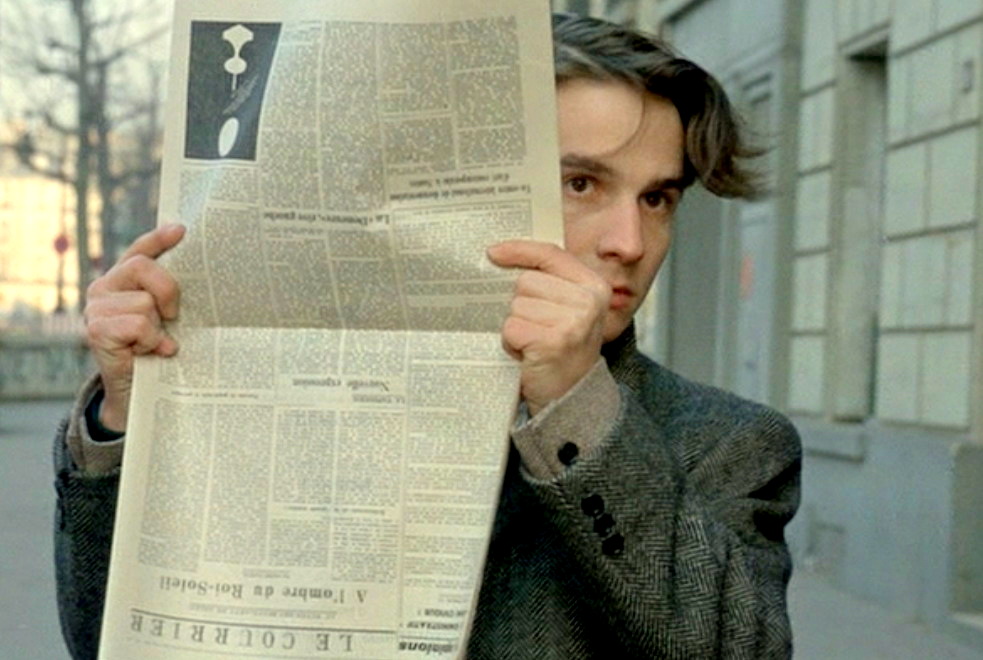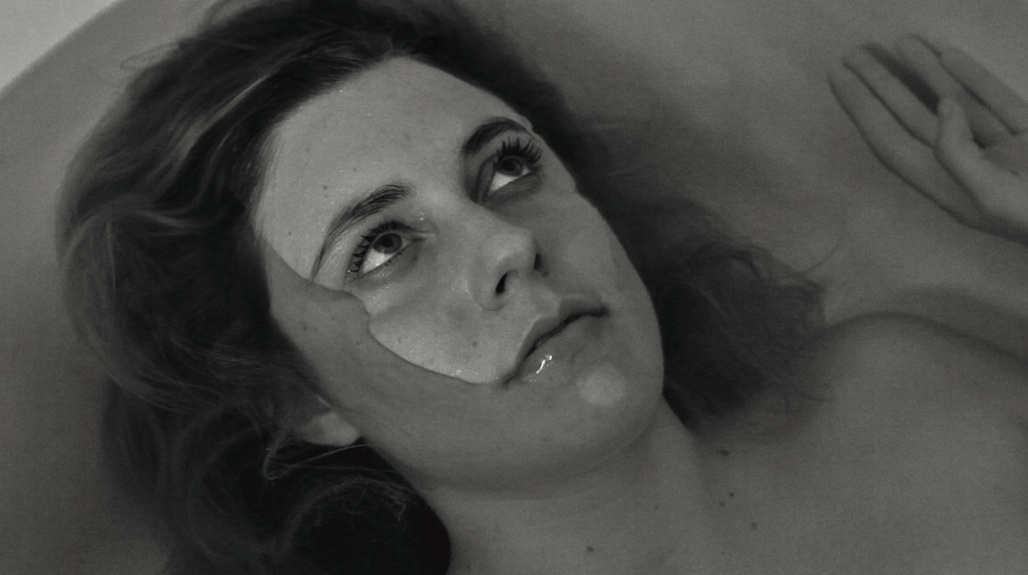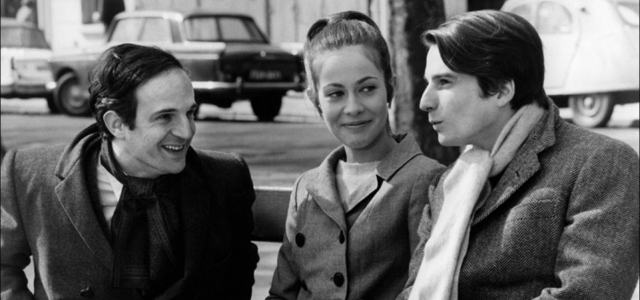This is a very curious film — a love song to the French New Wave, and to the films of François Truffaut in particular, but to a phase of Truffaut’s work which is not much celebrated today, the phase in which he abandoned his revolutionary edge in order to churn out generally bland but agreeable domestic comedies.
Frances Ha and its protagonist are utterly bland and agreeable, like the people and stories in Truffaut’s Antoine Doinel series after Les Quatre Cents Coups. Like those later Doinel films, Frances Ha has some substance in its sweetness, its genuine affection for Frances, who is ditzy to the point of stupidity but good-hearted and dogged in pursuit of her slightly off-kilter, generally misdirected ambitions.
This is not something to complain about. Truffaut’s later Doinel films offer us a wonderful portrait of a particular time and place and an object lesson in the simple pleasure of watching an artist lavish love and understanding on his characters. The same can be said of Frances Ha. The character of Frances in the new film owes a lot to the character of Doinel created by Truffaut and actor Jean-Pierre Léaud. Like Doinel she is a feckless dreamer, prone to lying and rarely competent but hard to dislike.
The homage is quite explicit — at one point a friend offers to introduce Frances to a guy who looks like Jean-Pierre Léaud, the Frances Ha soundtrack incorporates many cues from Truffaut films and the film is shot in a freewheeling but semi-classical black-and-white style that evokes the Nouvelle Vague.
What’s curious is that contemporary film artists want to emulate not the cutting-edge era of the Nouvelle Vague — not the daring experimental mode of the young Truffaut but his lapse into middle-aged contentment. It’s a question to ponder — why today’s young cinéastes are enchanted by the memory of a time (in Truffaut’s career at least) when the need and urge to take bold chances had passed.

